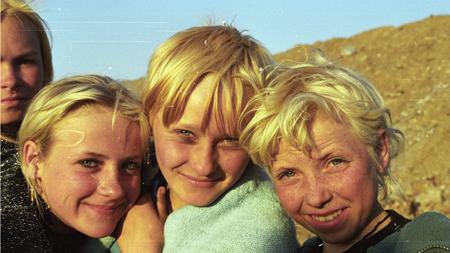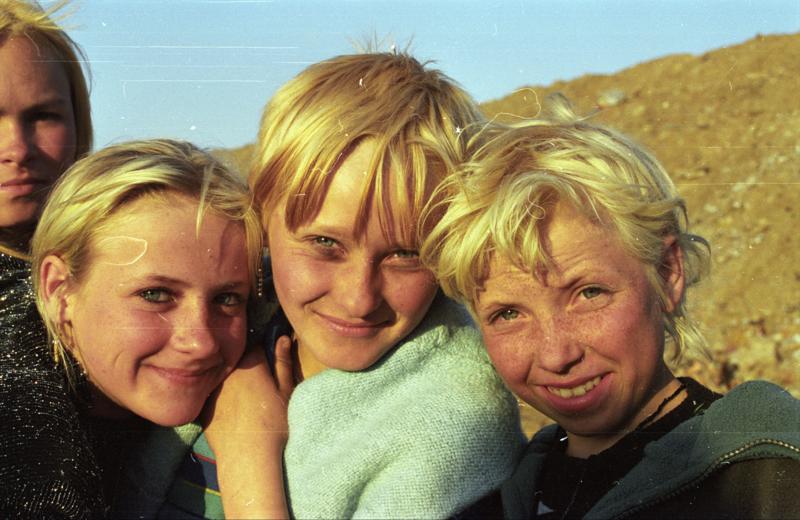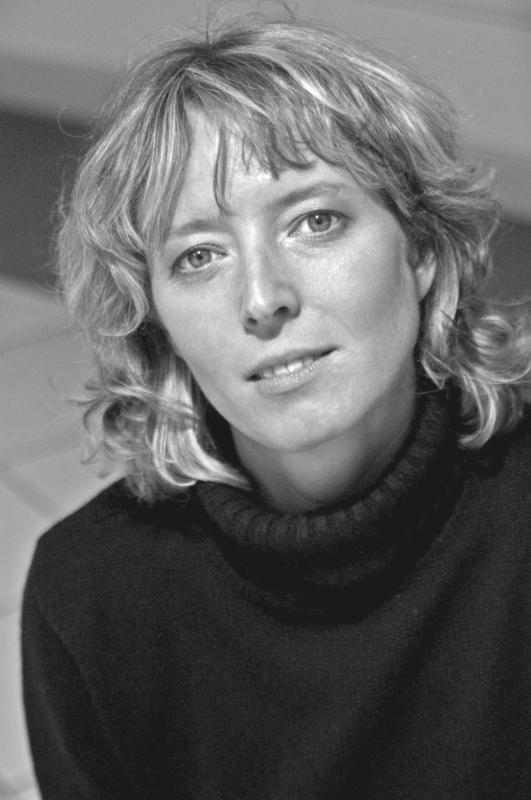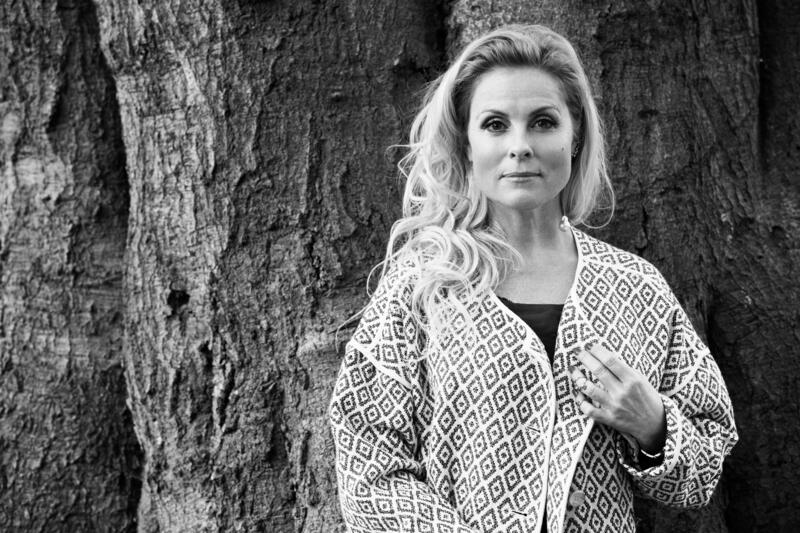There's a simple way to gauge a filmmaker's enthusiasm for their project. Ask a question like "How did you come up with the idea for the film?" and time the length of their answer. A typical reply from an engaged director lasts 3-4 minutes, while a highly dedicated filmmaker might take 7-10 minutes. At least, that’s my experience. When I asked the Polish filmmaker Hanna Polak how she came up with the idea for "Something Better to Come", her answer maxed out at 17 minutes.
"It's illegal to be in the landfill and filming is absolutely prohibited. No one wants the conditions at the dump to be made public." -Hanna Polak
"In 1999 I got involved in aid work in Russia. We were a group of friends who donated toys to orphanages and organised dinners for elderly poor people. One day, when I was walking through an underground station in Moscow, I ran into some homeless kids sniffing glue. I hung out and talked with them and realised that homeless children are a common sight in Russia. They did drugs and smoked and sniffed glue and had a hard life, but they were still kids. I thought, 'It's impossible to live like this.'
"I couldn’t sleep for days and was really upset emotionally. We're talking about many, many children. So I went back with some of my friends who had also been touched and we tried to help the kids."
Hope amidst Garbage
That's how Polak's documentary "Something Better to Come" got its start. For Polak, it was initially about aid work, not filmmaking – until the day in 2001 when she decided to photograph and then film the children. By 2004, she had enough footage to make The Children of Leningradsky, a 35-minute documentary about homeless children at Moscow's Leningradsky station. The film was nominated for an Oscar and made Polak's name as a director.
The homeless children living in train stations led Polak to even more shocking locations. At a Moscow landfill she came across a community of homeless people living among mountains of garbage, wild dogs and huge bulldozers. Among them was a girl, Yula, who was 11 when Polak first met her. Yula had come to the dump with her father and mother, as they lived in poverty and had no food. Her father later died at the dump. Now, Yula was dreaming of starting a family and living a normal life.
Polak traces this dream in her feature-length documentary, an incredible story of hope amidst garbage. The films shows people living under nightmarish conditions, with vodka practically taking the place of running water.
The Children Are Family
"This is a highly unusual project, especially because the shooting conditions were extremely difficult. It's illegal to be in the landfill and filming is absolutely prohibited. No one wants the conditions at the dump to be made public. Everything is illegal. And it’s a dangerous place. You could get killed by wild dogs or run over by heavy machinery. There's a lot of crime. It's a nation within the nation. It was dangerous for me, but it’s even more dangerous for the people who live there. If they are hurt, they can't call an ambulance. Officially, the inhabitants of the garbage dump don't exist."
"Something Better to Come" is the fruit of 14 years among the homeless kids in Moscow. The film and Polak's work to help the homeless are so closely connected that it's hard to tell whether she's an aid worker or a filmmaker.
"I'd say I'm a filmmaker, but if I can help out, I do. The film comes out of a desire to do something for these children," Polak says. Over time, she formed such close bonds with some of the children that she acquired a third role, as mother.
"These children are my family. They still are. I’m no longer in contact with many of the children in the film. I don't know if they're doing well or not. Maybe they're alive, maybe not. Sadly, I don’t have the time to visit them all. I don't know of the whereabouts of many of them. But I worry about them, so in a way they have become my children. I think they feel the same way. I took care of them. In many cases I didn't know how great their tragedies were. Several of them were victims of sexual abuse, but I had no idea. Their suffering is unfathomable."
Hard to Let Go
While it's not uncommon for documentary filmmakers to bond with the subjects of their films, maybe even fall in love with them, Polak’s relationship to the homeless kids in Moscow is unique. Sigrid Dyekjær, who produced "Something Better to Come" for Danish Documentary Production, describes Polak as "one with her material and her film."
"For Hanna, this film is so close to her, so much a part of her life, that letting go of it and finishing it is a journey in itself. It's many years of her life she has to let go of," Dyekjær says.
Polak says she tried to finish the film back in 2005, but somehow that didn’t work out.
“I was looking for a producer, but I also wanted to make sure that the film would be in the best hands. It really is my baby. I wanted to be absolutely certain. It had to be in the hands of someone who was as concerned with the project as I was.”
According to Dyekjær, who ended up finishing the film with Polak, very few people believed in the filmmaker’s vision.
“Hanna is a very singular filmmaker who is willing to go all the way and continually let the material dictate the story. The story wouldn’t end until now, and that made it hard for Hanna to get funding for the film.”
A Film about Humanity
Polak, who is 47, has such a special relationship to "Something Better to Come" that she almost becomes as much a story as the homeless people she filmed. But that makes no sense to Polak, who for years has been consumed with the importance of getting her story out to the world. The film isn’t just about people living in a landfill.
"'Something Better to Come' is a film about humanity, about beauty," she says. "Even though they were homeless and living under these conditions, they would do anything for the people they cared about. Often, they would give everything they had to help someone else. They gave their hearts. For me, that raises a question of where humanity begins and ends. What's a successful life? These people were not successful materially, but for me they were very successful as human beings. They can feel, they can love, they can share. That doesn't mean they weren't flawed, but it's incredible to come to such a place and be made to feel welcome."
Russian President Vladimir Putin is evoked several times in the film as a welcome target when the inhabitants of the garbage dump need to vent. But, Hanna Polak stresses, she has not made a political film.
"It's a universal story. There's homelessness everywhere in the world. Some homeless children came to my office in Warsaw one day looking for food and they looked exactly like the Russian children. I didn't want to make a clichéd film about Russia and its social problems. I wanted to make a film about human dignity, about the beauty in people. In that sense my film is a modern fairytale."
"Yula had the tenacity to make her dream come true. As a filmmaker, it was an incredible privilege to follow her for so many years. I don't think my camera mattered to her. I think she personally had the strength to do what it takes to get a normal life."
"Something Better to Come", selected for IDFA's Feature-Length Competition, is produced by Sigrid Dyekjær for Danish Documentary Production and co-produced by Hanna Polak for Hanna Polak Films.




